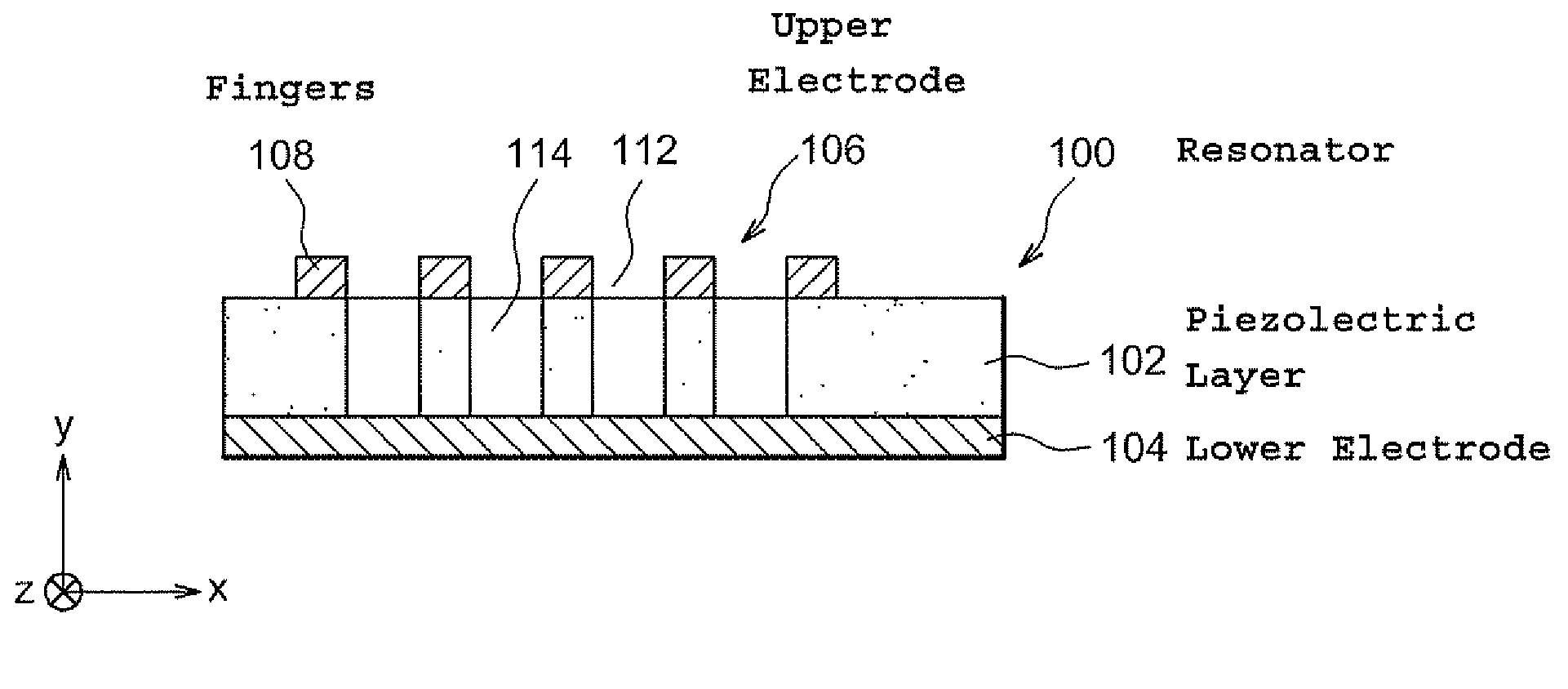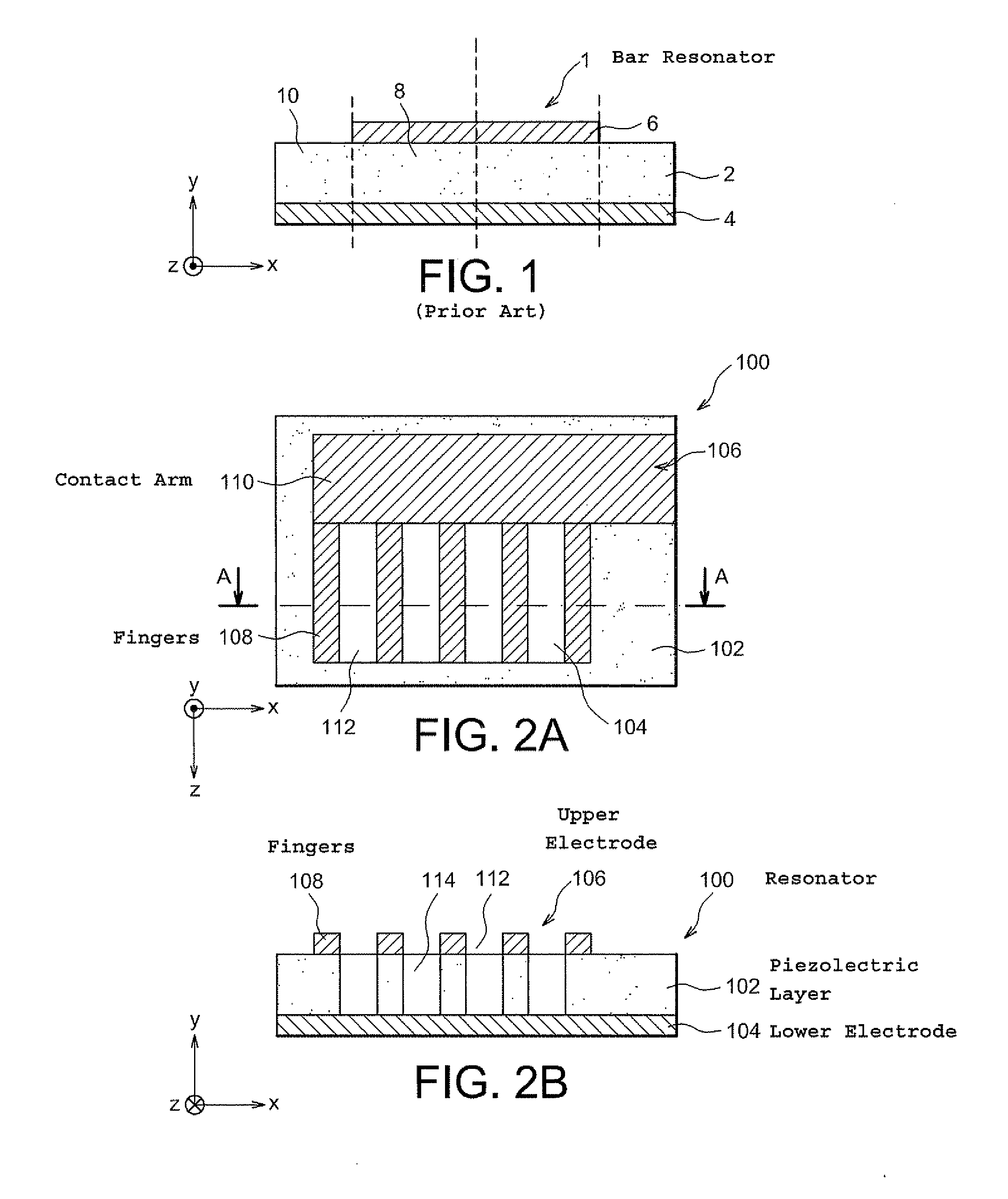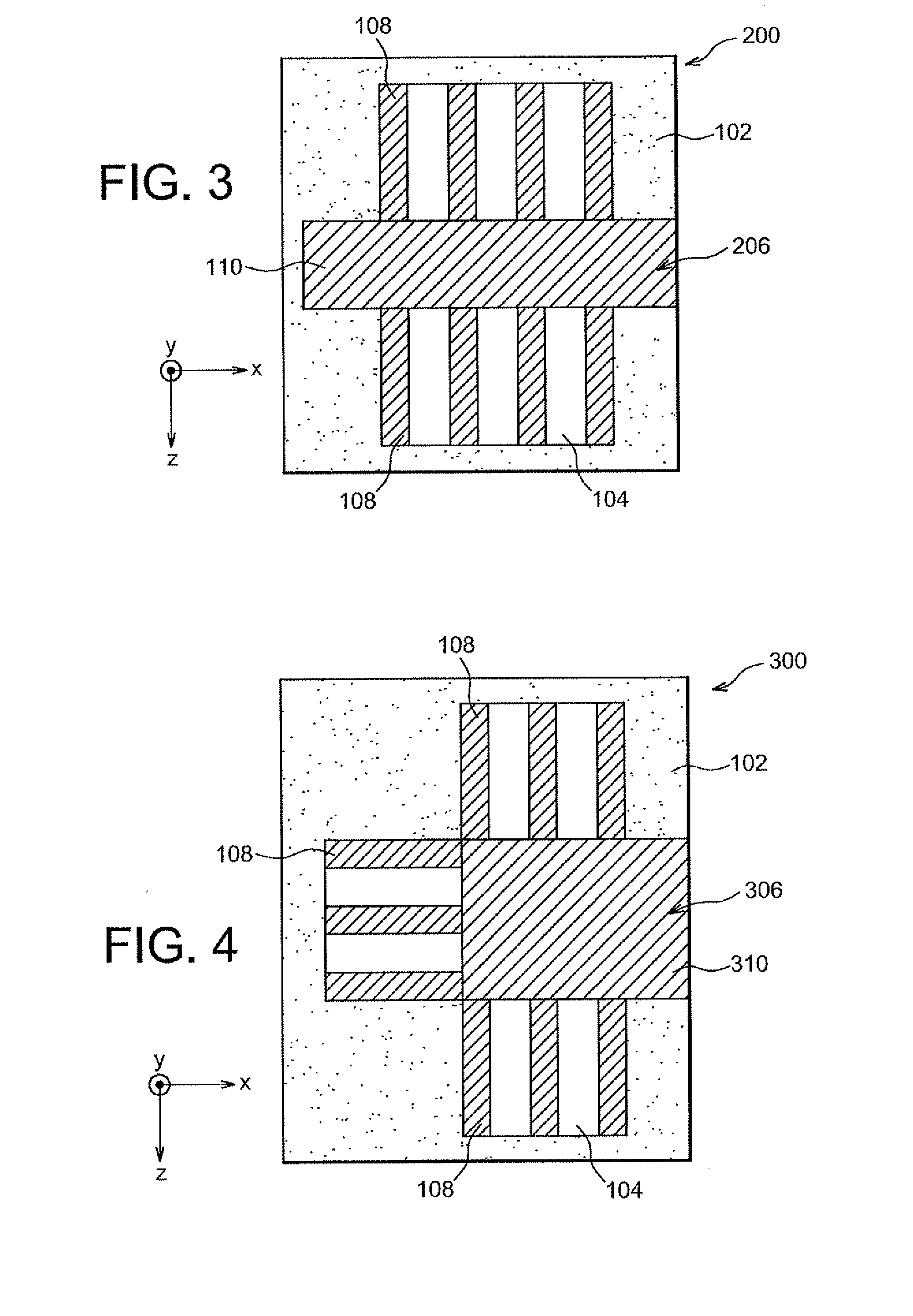Lamb wave resonator
a resonator and lamb wave technology, applied in the field of resonators, can solve the problems of difficult to obtain the difference in piezoelectric layer propagation coefficient, filter limitations, saw device propagation loss, etc., and achieve the effect of effectively using the resonance energy of lamb waves, low series resistance, and high quality factor
- Summary
- Abstract
- Description
- Claims
- Application Information
AI Technical Summary
Benefits of technology
Problems solved by technology
Method used
Image
Examples
Embodiment Construction
[0038]Identical, similar or equivalent parts of the various figures described below have the same numeric references for consistency between the figures. The various parts shown in the figures are not necessarily shown according to the same scale, so as to make the figures easier to read. The various possibilities (alternatives and embodiments) are to understood as being non-exclusive of one another, and can be combined with one another.
[0039]Reference is first made to FIGS. 2A and 2B, which respectively show a top view and a cross-section view according to axis AA as shown in FIG. 2A, of a Lamb wave resonator 100 according to a first embodiment.
[0040]This resonator 100 comprises a layer 102 based on a piezoelectric material. Preferably, this piezoelectric material is aluminum nitride and / or zinc oxide and / or PZT. The piezoelectric layer 102 has a thickness of which the value is dependent on the embodiments as well as the shape and dimensions of the other elements of the resonator 1...
PUM
 Login to View More
Login to View More Abstract
Description
Claims
Application Information
 Login to View More
Login to View More - R&D
- Intellectual Property
- Life Sciences
- Materials
- Tech Scout
- Unparalleled Data Quality
- Higher Quality Content
- 60% Fewer Hallucinations
Browse by: Latest US Patents, China's latest patents, Technical Efficacy Thesaurus, Application Domain, Technology Topic, Popular Technical Reports.
© 2025 PatSnap. All rights reserved.Legal|Privacy policy|Modern Slavery Act Transparency Statement|Sitemap|About US| Contact US: help@patsnap.com



